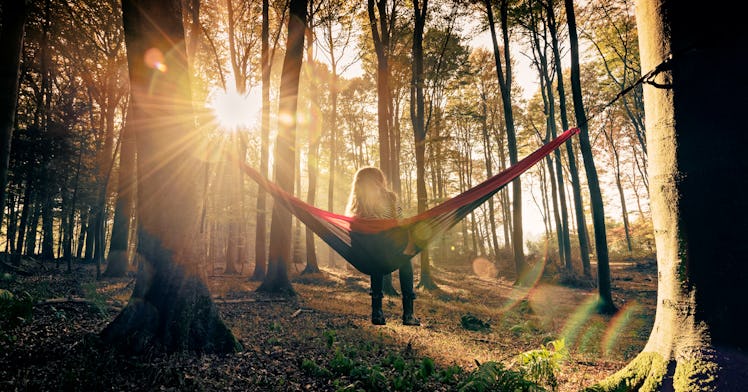Why Daylight Savings Is Going to Suck More This Year Than Ever
Sorry.

For many, the COVID-19 pandemic has thrown several daily routines that we’ve previously settled into—like working at a desk in an actual office, listening to a podcast on an otherwise humdrum commute, and generally socializing in large groups—completely out of whack. And now, as Daylight Saving Time ends on Sunday, Nov. 1, marking the return of Standard Time and that yearly ritual of setting the clock back an hour, our bodies and routines are about to be thrown even more off-kilter. Great!
The disruption to our circadian rhythms can negatively impact our mental health and can even make it more difficult for our kids to fall asleep, which is especially frustrating if the return to Standard Time happens to occur during an already-established sleep training schedule. Despite the extra sixty minutes of sleep in the morning, the change to Standard Time means that we get less light during the day, which might just have the unfortunate side effect of making the stress of the second wave of the pandemic even more difficult to cope with.
This year, getting used to putting the alarm clocks back will likely be even more unpleasant than it usually is—and that’s saying a lot. A 2017 study found that episodes of clinical depression increased by 11% during the transition out of Daylight Savings. And that’s pre-pandemic, in times when people could still see their peers at the office, got out of the house every day, and weren’t generally living with existential dread.
The clock shift can take a toll on one’s well-being in any year, but compounding seasonal depression with the stressors of COVID-19 could be particularly troubling. A study from the JAMA Network found that three times as many American adults now meet the criteria for diagnosable depression than before the pandemic. Plus, as more people are working from home and spending less time outside, there are fewer distractions, such as commutes, to make us forget about the fact that there is less light outside, as per The Wall Street Journal.
Well, what does this mean for families? It means that, as per advice from Dr. David K. Welsh, a professor at the University of California, San Diego Department of Psychiatry & Center for Circadian Biology, that spending time outside, particularly in the morning when there is the most light, can keep our circadian rhythms in check. In turn, getting outside to catch some early morning rays could potentially promote a better mood and better sleep. And as more kids are doing distance learning, getting outside should be a priority for both parents and children. For parents concerned about how the clock shift could affect their families this year, it turns out that getting in the habit of an early morning stroll, if possible, might just be an effective tool for fighting off some of the worst effects of the transition to Standard Time.
This article was originally published on